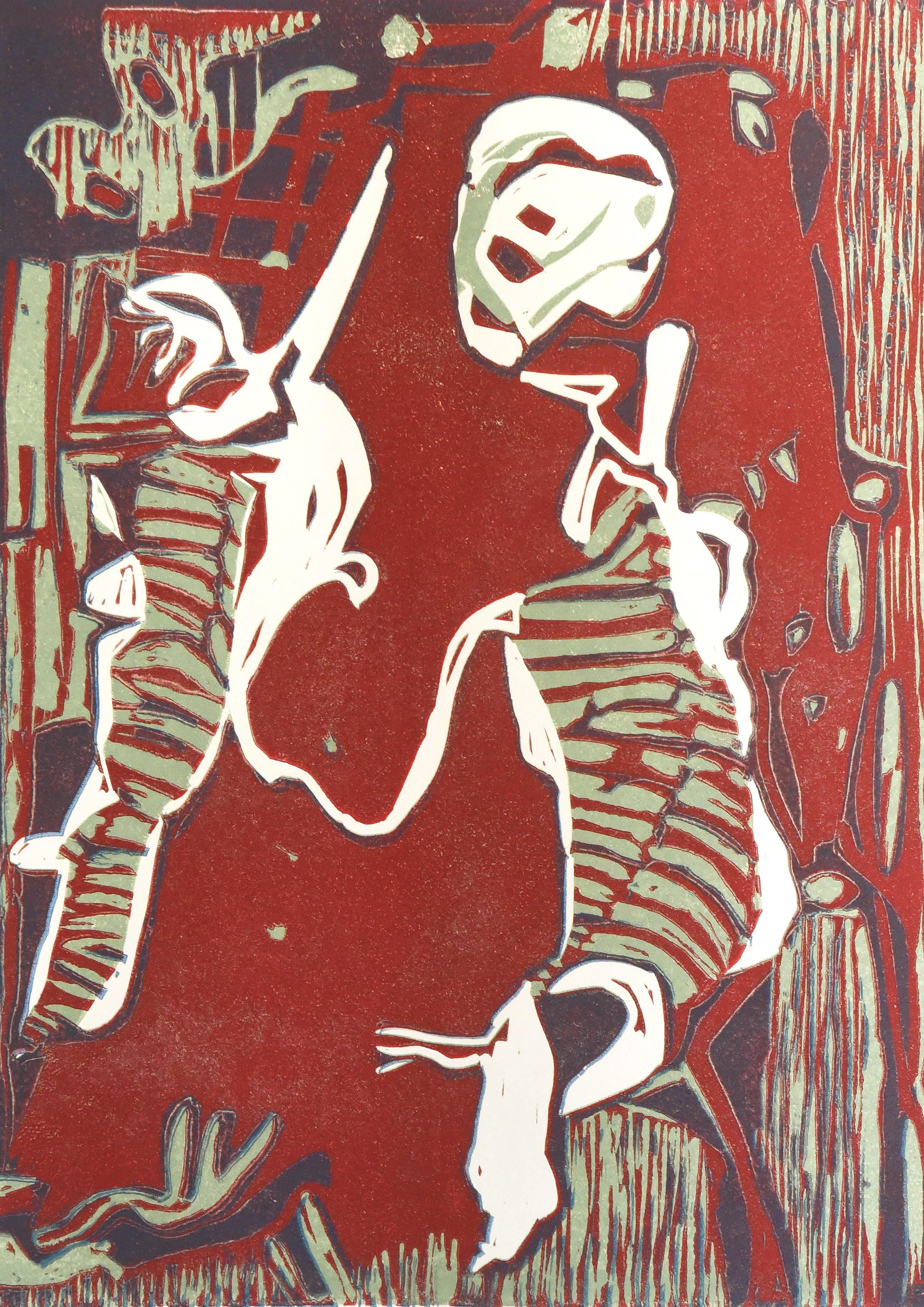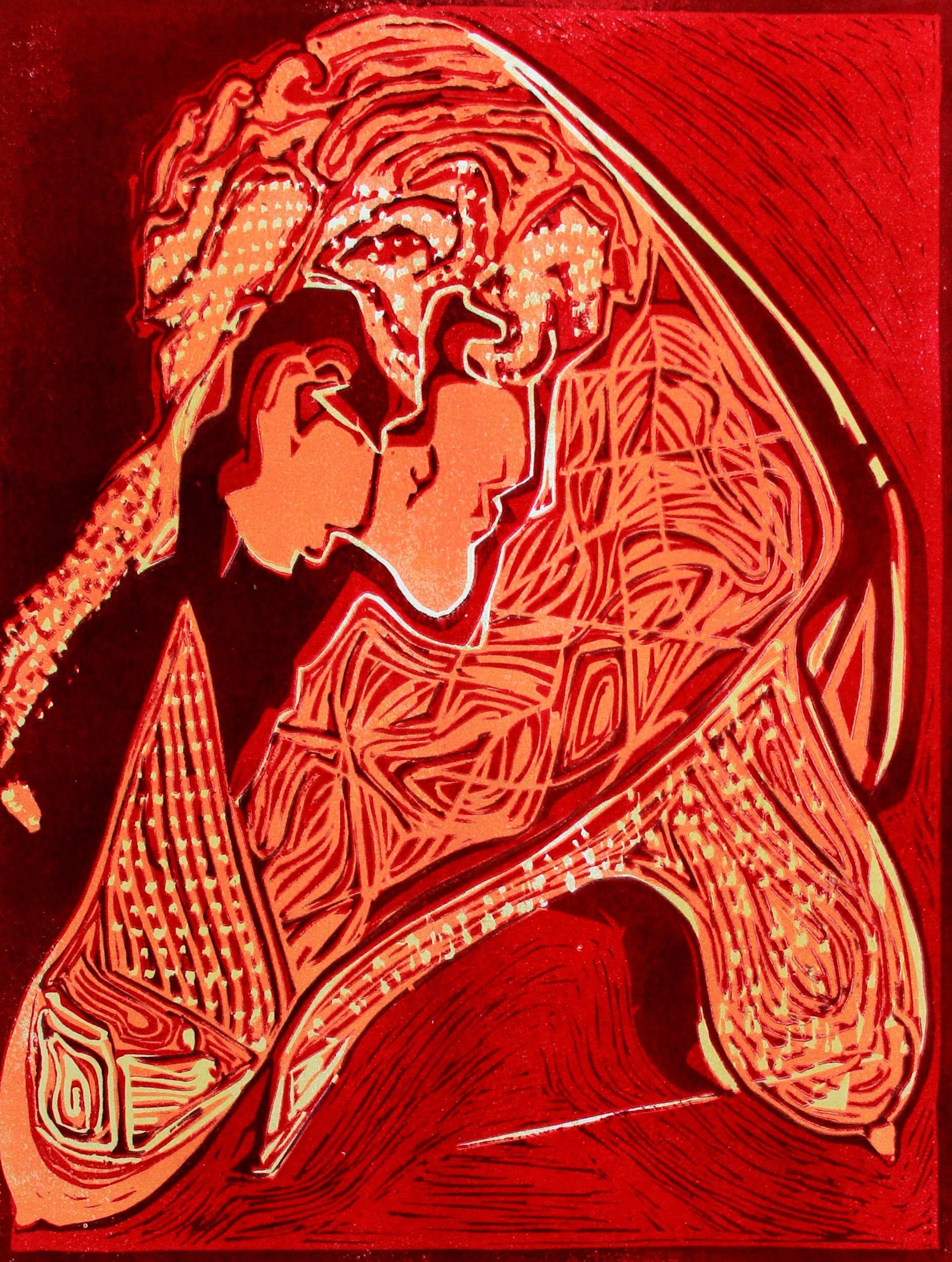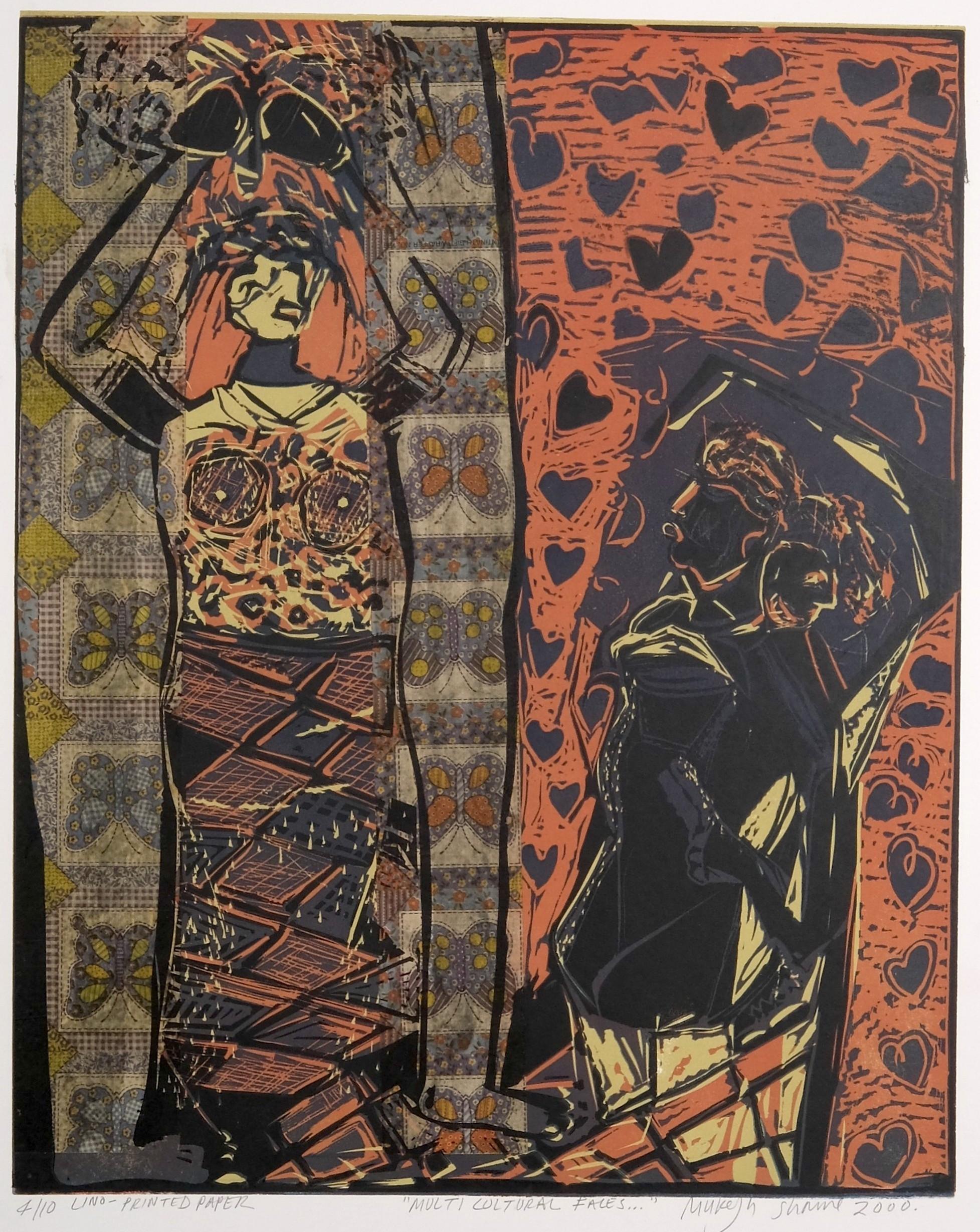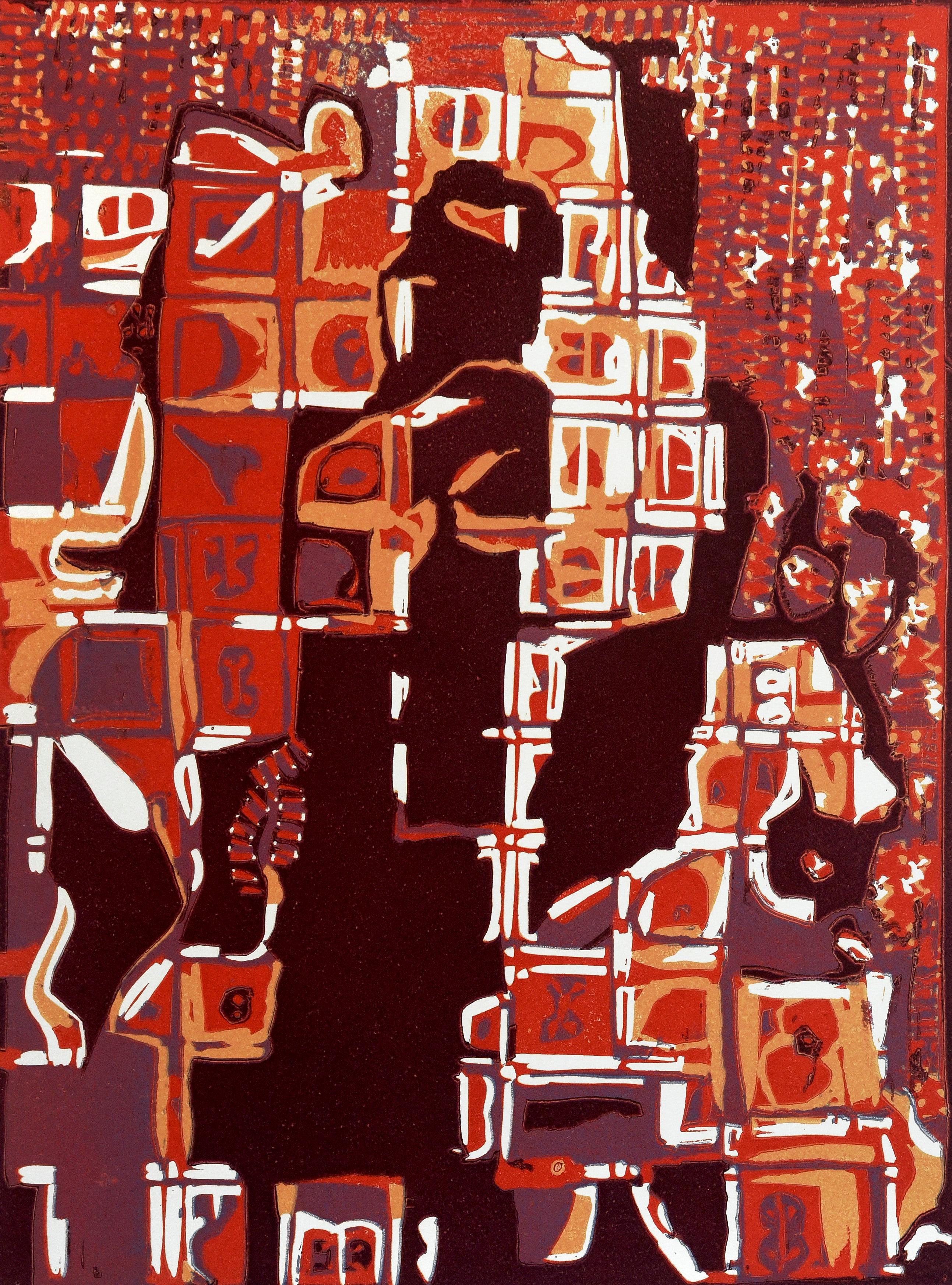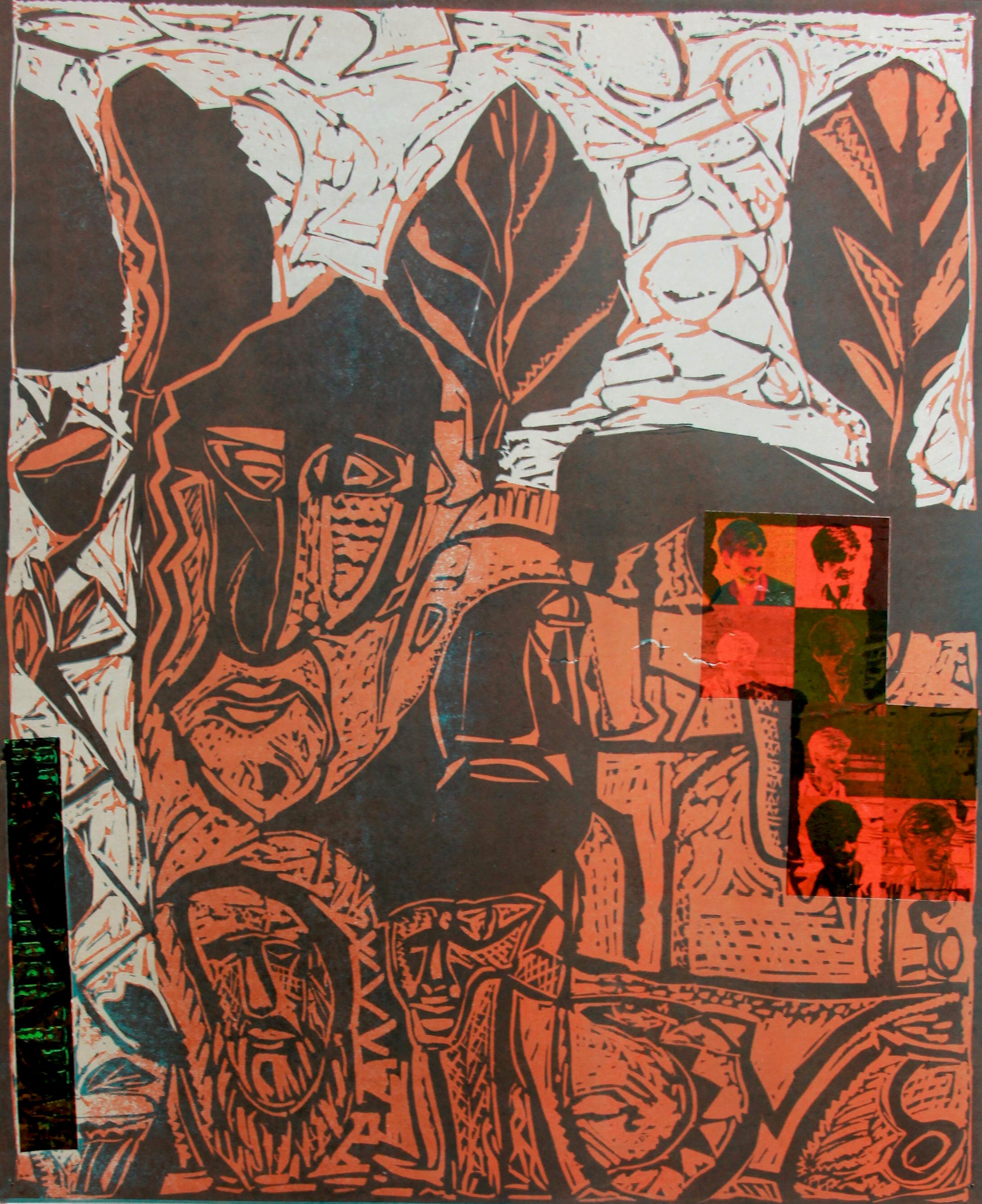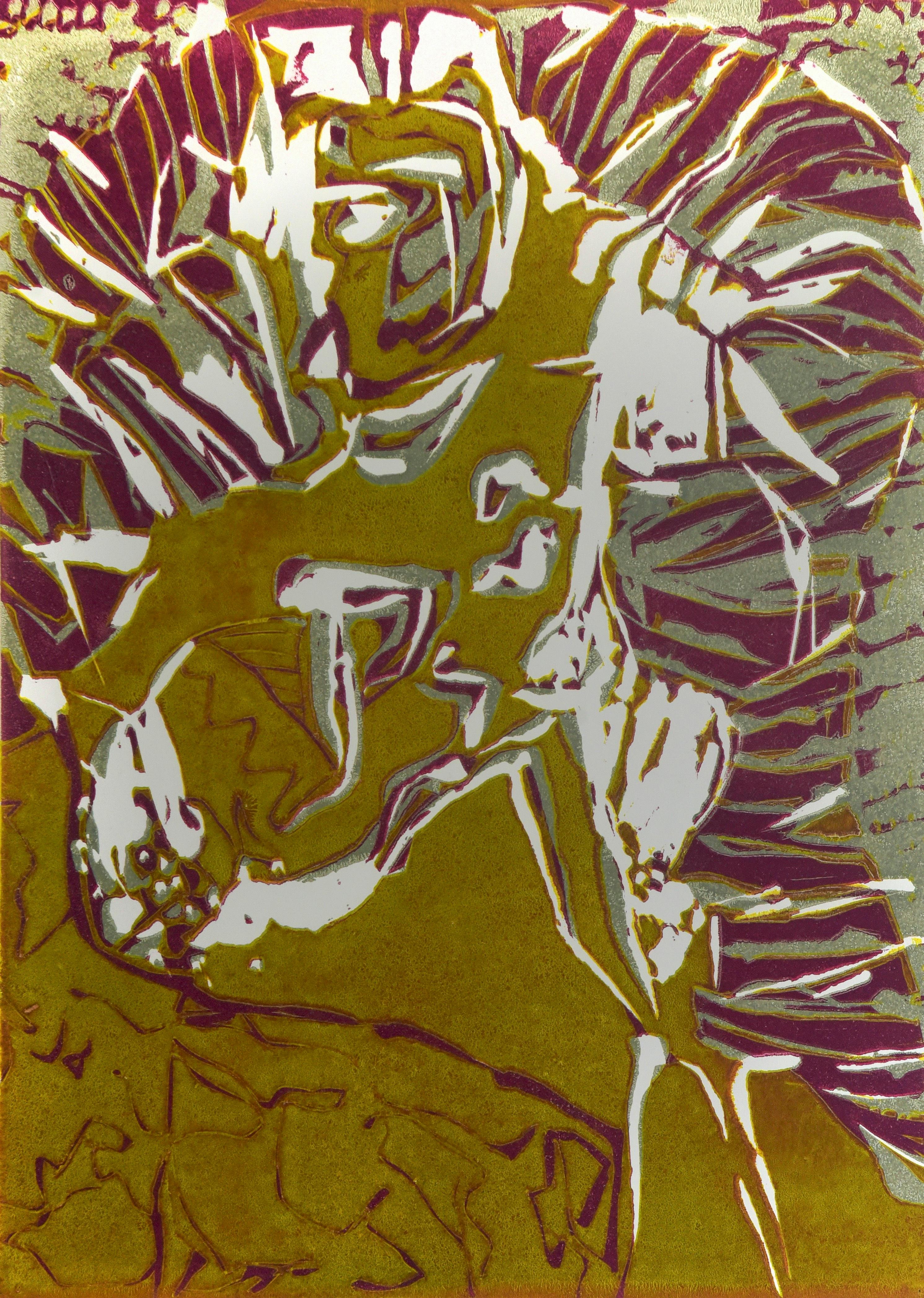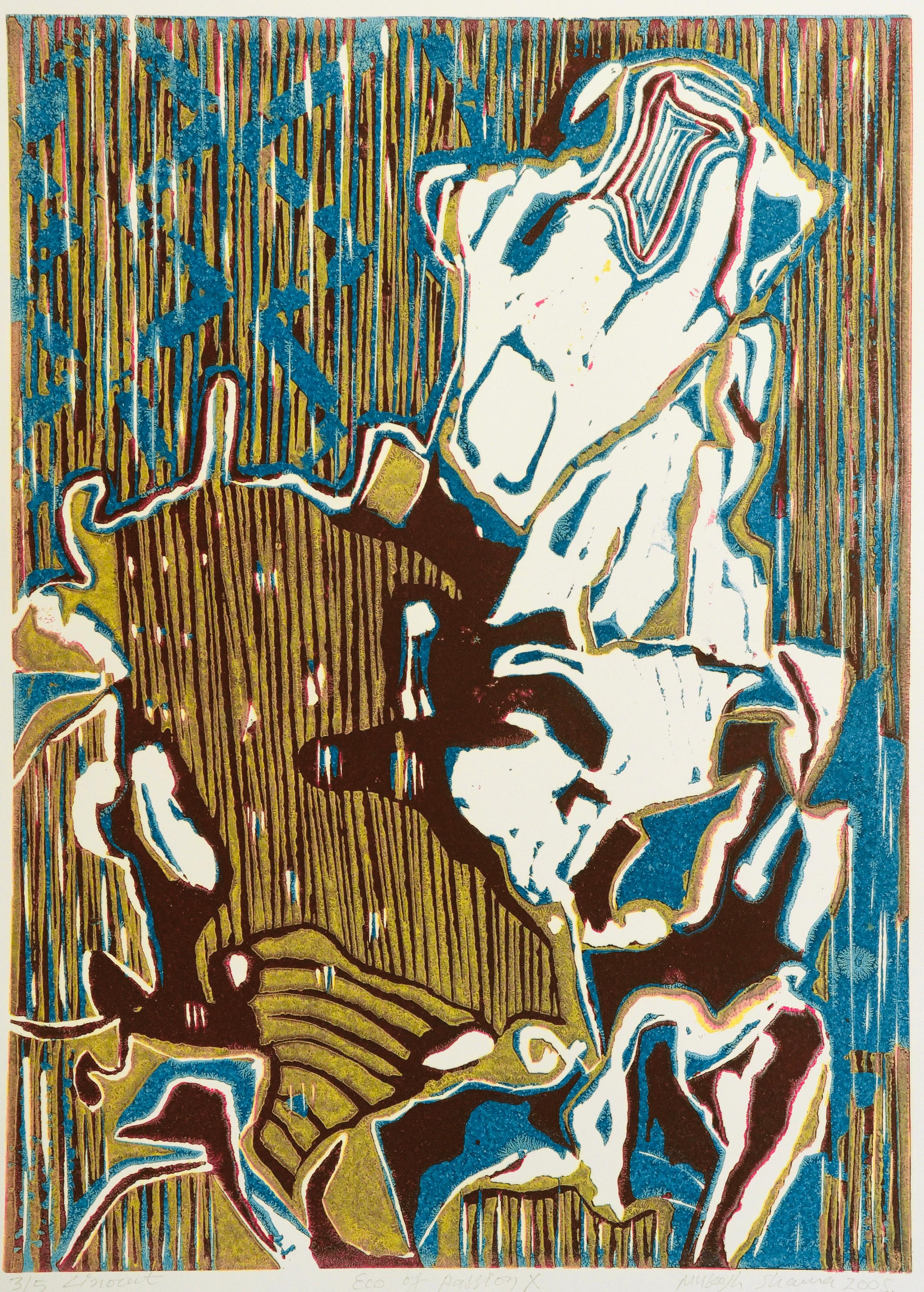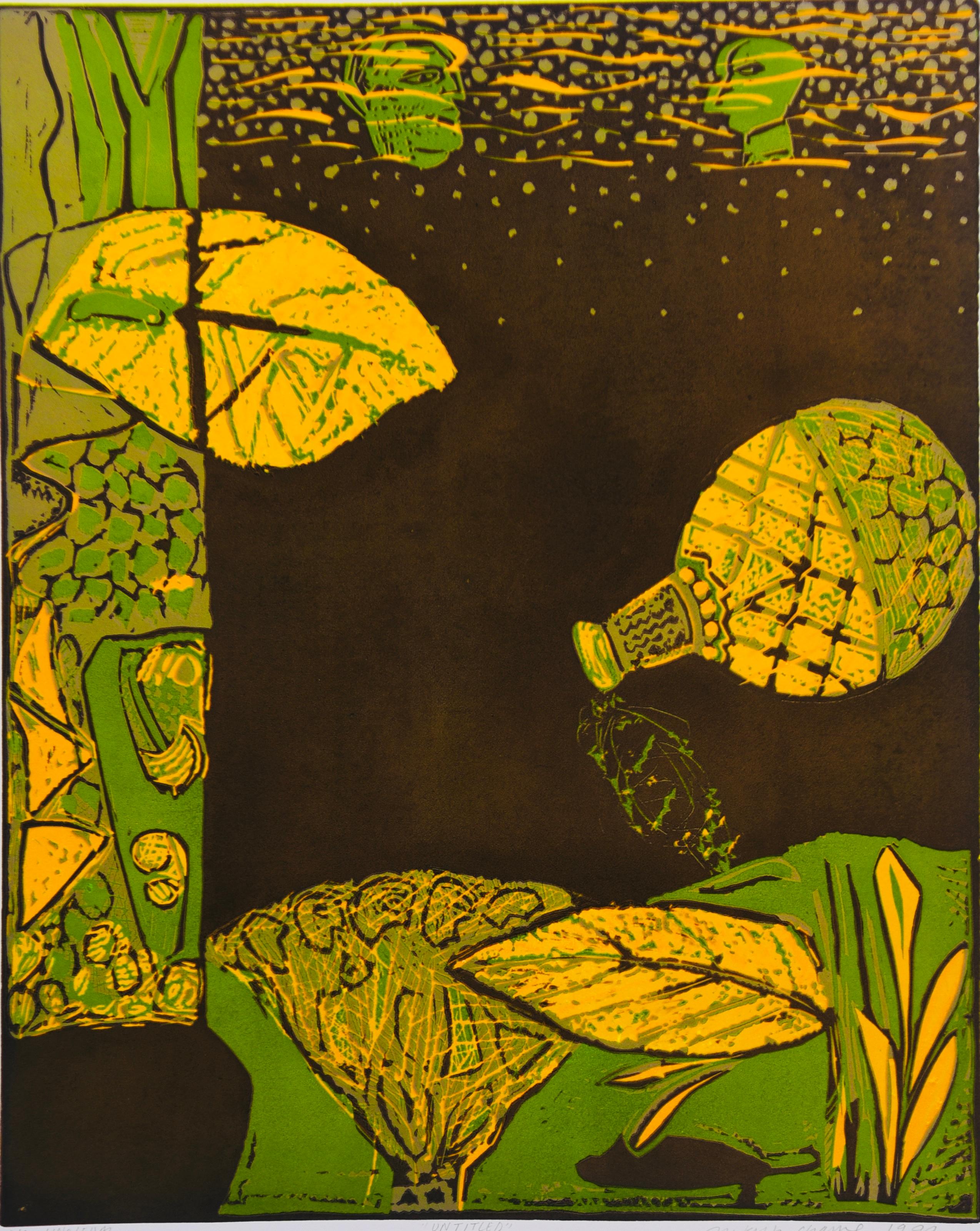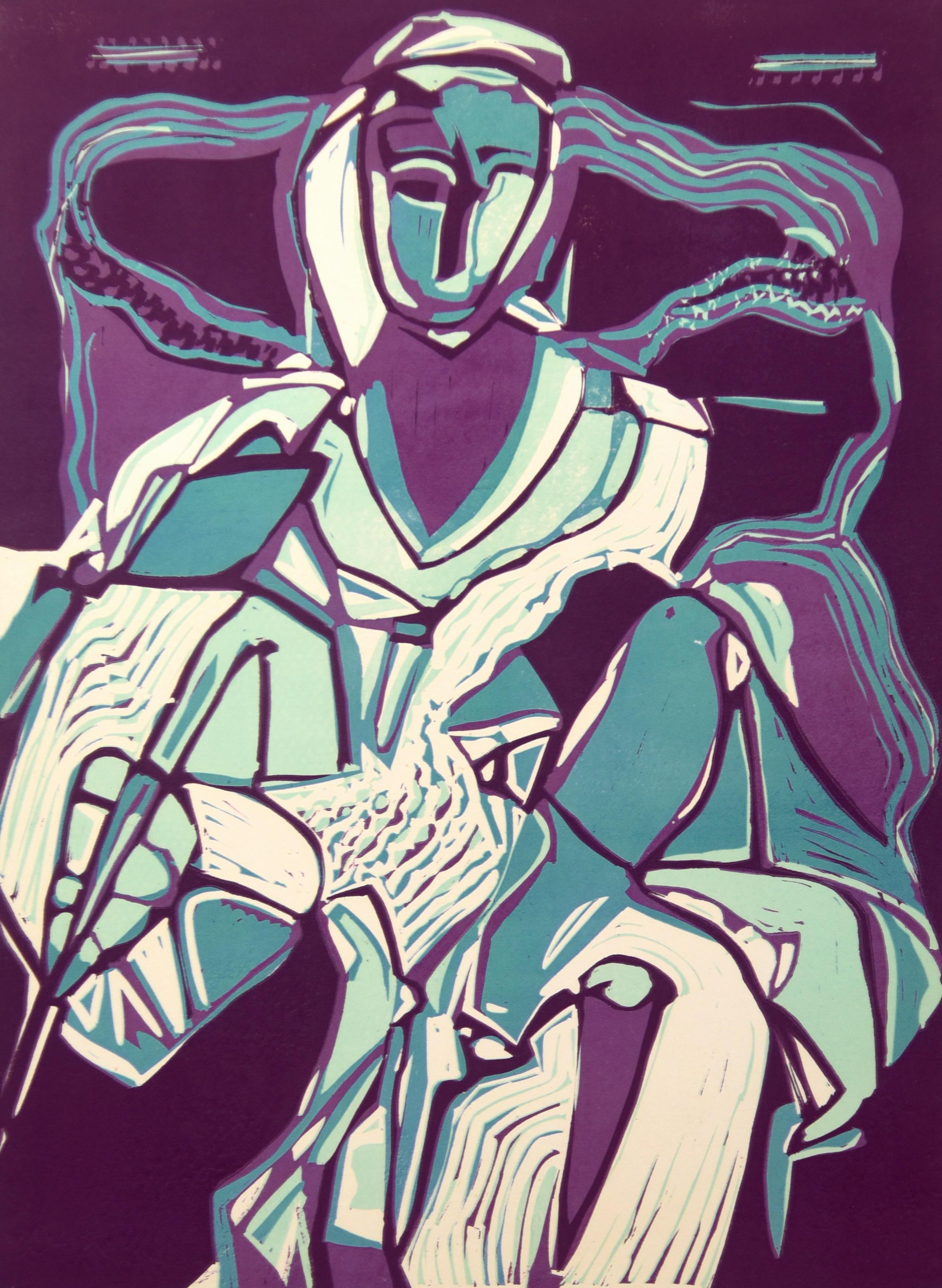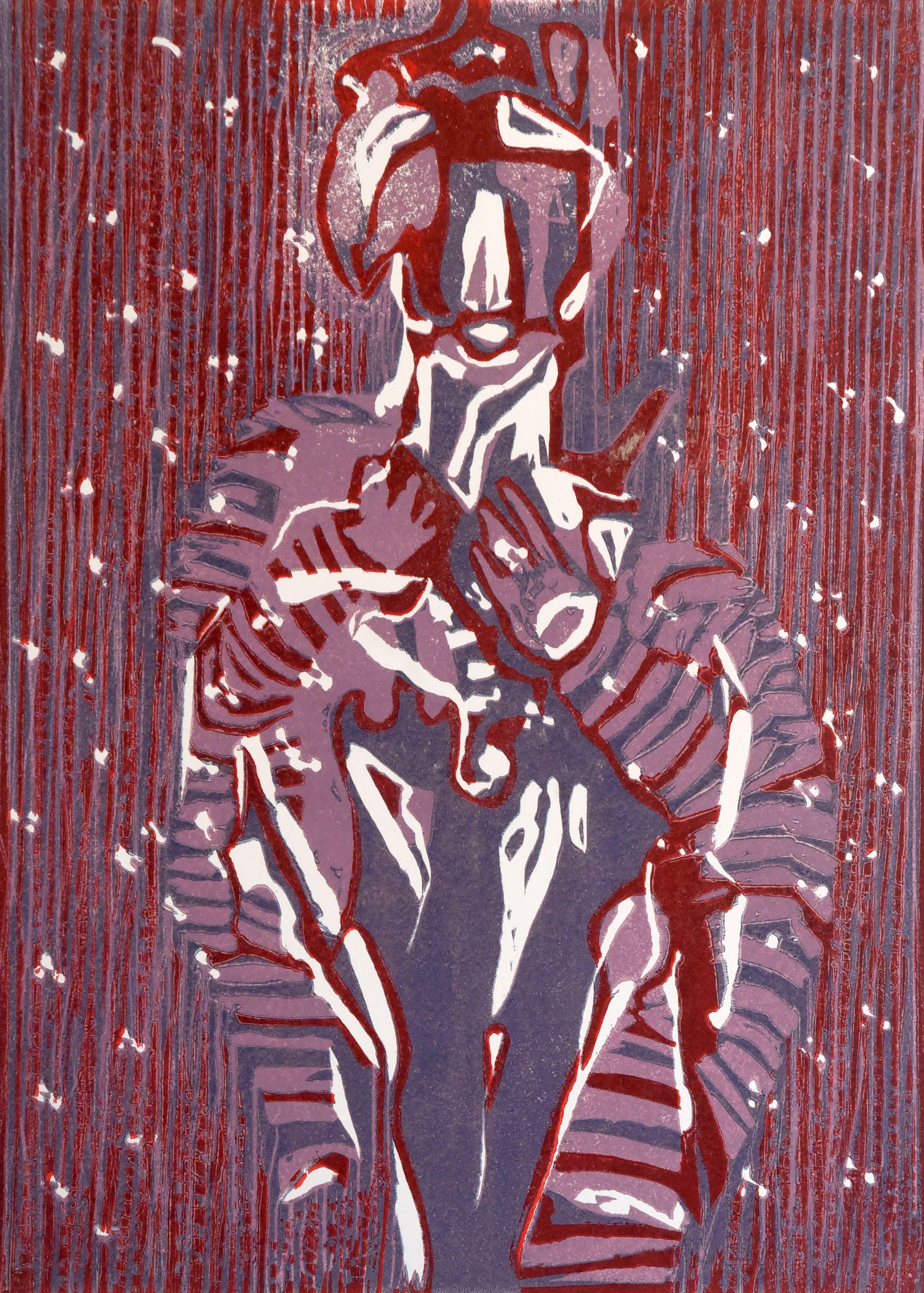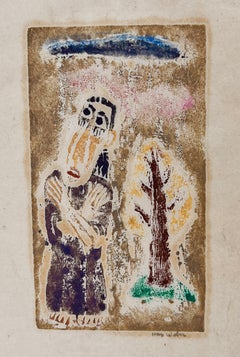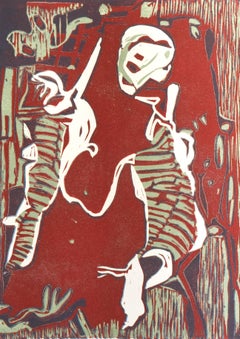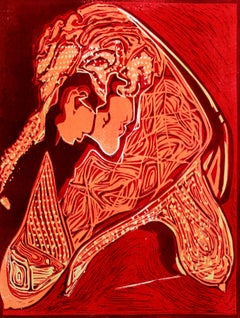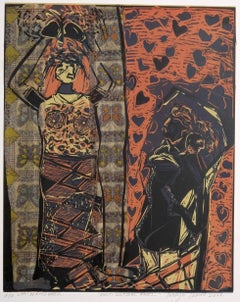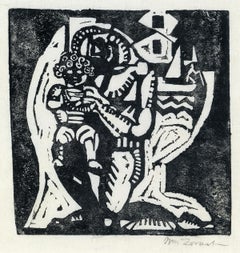
Father and Child
View Similar Items
Want more images or videos?
Request additional images or videos from the seller
1 of 4
William ZorachFather and Child1916
1916
About the Item
- Creator:William Zorach (1887 - 1966, American)
- Creation Year:1916
- Dimensions:Height: 45.28 in (115 cm)Width: 45.28 in (115 cm)
- Medium:
- Movement & Style:
- Period:
- Condition:
- Gallery Location:New York, NY
- Reference Number:1stDibs: LU51534158371
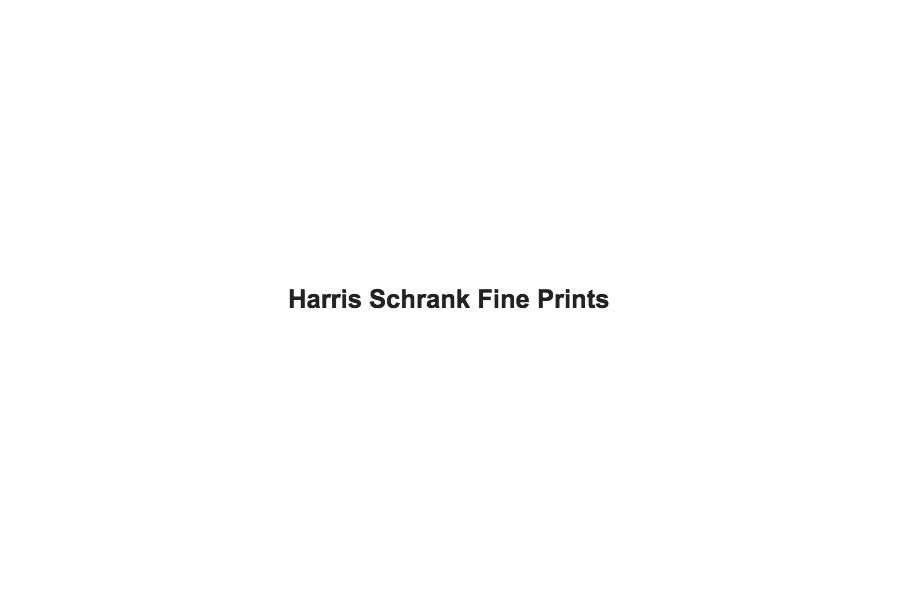
About the Seller
4.9
Recognized Seller
These prestigious sellers are industry leaders and represent the highest echelon for item quality and design.
Established in 2000
1stDibs seller since 2016
99 sales on 1stDibs
Typical response time: 3 hours
Associations
International Fine Print Dealers Association
More From This SellerView All
- InvocationBy Max WeberLocated in New York, NYM a x W e b e r – – 1 8 8 1 – 1 9 6 1 Invocation- – 1919-20, Color Woodcut. Rubenstein 27. Proofs only. Signed in pencil. Image size 3 3/4 x 2 1/8 inches (124 x 54 mm); sheet size ...Category
1910s Cubist Figurative Prints
MaterialsWoodcut
$13,500 - Swing BoatsBy Claude FlightLocated in New York, NYClaude Flight (1881-1955), Swing Boats, circa 1919-1921, color linoleum cut on very thin Japan paper, signed and numbered by the artist lower left. In very ...Category
Early 20th Century Abstract Abstract Prints
MaterialsLinocut
- Monseignor St. ThomasBy Cyril PowerLocated in New York, NYCyril Power (1872-1951) color linoleum cut, Monseignor St. Thomas, circa 1931, signed and titled in pencil at the lower right, apart from the edition of 60. Reference: Redfern 24. In very good condition, on buff oriental laid tissue, conservation matted, with margins, 13 7/8 x 11 1/8, the sheet 15 x 12 5/8 inches. A fine impression, with the colors fresh and vivid. Printed in four colors (yellow, red, blue and dark blue). The prints of the Grosvenor School artists were created by applying colors with successive blocks. The margins show the colors of each of these blocks (see illustration of the margin). The subject matter of this print relates to TS Eliot...Category
1930s Futurist Abstract Prints
MaterialsLinocut
- SailsBy Sybil AndrewsLocated in New York, NYSybil Andrews (1898-1992), Sails, linocut in colors, 1960, signed (twice), titled, and inscribed “TP” in pencil. Reference: White 50. In good condition, two sheets, each image 7 1/...Category
1960s Futurist Abstract Prints
MaterialsLinocut
$30,000 - Wuxtry! [Extra!]By Albert AbramovitzLocated in New York, NYAlbert Abramovitz (1879-1963), Wuxtry! [Extra?!], linocut in colors, c. 1936, signed in pencil lower right and titled lower center [also initialed in the plate]. In very good conditi...Category
1930s American Realist Figurative Prints
MaterialsLinocut
- Etching 1916 Number IIBy Wassily KandinskyLocated in New York, NYWassily Kandinsky (1866-1944), Etching 1916 Number II, drypoint, signed in pencil lower right, titled, numbered (No. 9) and dated lower left [also with initials and date in the plate lower right]. Reference: Roethel 154, only state, edition of 10. In excellent condition (the barest handling fold at sheet edge), printed on a heavy ivory wove paper, the full sheet with full margins, 4 7/8 x 3 1/4, the sheet 17 1/2 x 13 inches, archival mount with window mat. A fine fresh impression of this great rarity, printed in a dark brown ink. Kandinsky created this drypoint (erroneously named Etching 1916) in early 1916 while staying with Gabriel Munter in Stockholm during the winter of 1915-16. This is from the second series of drypoints he made; the first was in the year 1913-14. Provenance: Kornfeld Auction, Bern, June 2007. The tiny size of this edition (10) makes this print a great rarity within the Kandinsky’s printed...Category
1910s Abstract Abstract Prints
MaterialsDrypoint
You May Also Like
- Abstract Landscape India Edition 3/5 Linocut Print Nature Red Navy PrimitiveBy Mukesh SharmaLocated in Norfolk, GBThere is a natural and raw understanding in Mukesh Sharma’s prints that both depict, and are influenced by, the Rajastani communities of his home town in rural India. In these Limited Edition fine-art prints, made over a period of twenty years, we are offered the colours of India’s ancient land, the textures, light and the patterns that are everywhere. In the patterns of the arable fields to the jali's (carved screens) in the architecture. This work is however not romantic nor nostalgic but shows a deeper rooted need to offer a visual heritage of place, of where the artist is from and the journey that he is taking. The results are both compelling and honest. Mukesh Sharma, Frenzy M3, Lino-cut chin-coll’e on German Ivory paper Edition: 3 of 5, 2005 Image size: 50 x 33 cm / Sheet size: 79 x 55 cm Unframed 'In this work in particular I feel that a true work of art is the creation of an experience from the interaction between the human self and the outside world' Mukesh Sharma's work: It is often in childhood that paths are set for what we will become. Mukesh Sharma hails from a rural, agricultural village in Rajasthan, India. His Father is a craftsman who fixed and mended farm machinery and understood the working parts in the processes. Sharma followed in his Father’s footsteps, as is often the case in Indian families, but his was not the machines of the fields but the presses of the printing studio. Like his Father, Mukesh Sharma is fascinated with understanding how things work and how he can manipulate the metal in his hands. It is not surprising then that his medium of choice is printing. One of the most physically challenging of all the practices, it can often be physically challenging as well as technical and detailed. In his youth, Sharma would draw with stones on walls and floors. He was lucky his family encouraged this and he is grateful for his early art-training at the Jaipur School of Art but it was at the Baroda Art Department that he was introduced to the great printing traditions of Jyoti Bhatt...Category
Early 2000s Abstract Abstract Prints
MaterialsArchival Ink, Archival Paper, Linocut, Archival Pigment
- Abstract Print India Artist Proof Linocut Nature Earth Love Red OrangeBy Mukesh SharmaLocated in Norfolk, GBThere is a natural and raw understanding in Mukesh Sharma’s prints that both depict, and are influenced by, the Rajastani communities of his home town in rural India. In these Limited Edition fine-art prints, made over a period of twenty years, we are offered the colours of India’s ancient land, the textures, light and the patterns that are everywhere. In the patterns of the arable fields to the jali's (carved screens) in the architecture. This work is however not romantic nor nostalgic but shows a deeper rooted need to offer a visual heritage of place, of where the artist is from and the journey that he is taking. The results are both compelling and honest. Mukesh Sharma, Twin Showcase, Lino-cut on German Ivory paper Edition: AP, 2005 Image size: 47 x 39 cm / Sheet size: 79 x 55 cm Unframed 'We belong where love finds us' Mukesh Sharma's work: It is often in childhood that paths are set for what we will become. Mukesh Sharma hails from a rural, agricultural village in Rajasthan, India. His Father is a craftsman who fixed and mended farm machinery and understood the working parts in the processes. Sharma followed in his Father’s footsteps, as is often the case in Indian families, but his was not the machines of the fields but the presses of the printing studio. Like his Father, Mukesh Sharma is fascinated with understanding how things work and how he can manipulate the metal in his hands. It is not surprising then that his medium of choice is printing. One of the most physically challenging of all the practices, it can often be physically challenging as well as technical and detailed. In his youth, Sharma would draw with stones on walls and floors. He was lucky his family encouraged this and he is grateful for his early art-training at the Jaipur School of Art but it was at the Baroda Art Department that he was introduced to the great printing traditions of Jyoti Bhatt...Category
Early 2000s Abstract Abstract Prints
MaterialsArchival Ink, Archival Paper, Linocut, Archival Pigment
- Abstract Landscape Rajasthan Print Nature Multicultural Faces Earth Orange BrownBy Mukesh SharmaLocated in Norfolk, GBThere is a natural and raw understanding in Mukesh Sharma’s prints that depict, and are influenced by, the Rajastani communities of his home town in rura...Category
Early 2000s Abstract Abstract Prints
MaterialsArchival Ink, Archival Paper, Linocut, Archival Pigment
- Abstract Landscape India Edition 3/5 Linocut Print Nature Red Orange BlackBy Mukesh SharmaLocated in Norfolk, GBThere is a natural and raw understanding in Mukesh Sharma’s prints that both depict, and are influenced by, the Rajastani communities of his home town in rural India. In these Limited Edition fine-art prints, made over a period of twenty years, we are offered the colours of India’s ancient land, the textures, light and the patterns that are everywhere. In the patterns of the arable fields to the jali's (carved screens) in the architecture. This work is however not romantic nor nostalgic but shows a deeper rooted need to offer a visual heritage of place, of where the artist is from and the journey that he is taking. The results are both compelling and honest. Mukesh Sharma, Celebration “O”, Lino-cut chin-coll’e on German Ivory paper Edition: 3 of 5, 2005 Image size: 50 x 33 cm / Sheet size: 79 x 55 cm Unframed "In this piece I use multiple layering of image, repetition of shape, layered shapes to inform my life celebration and my investigation into Indian culture" Mukesh Sharma's work: It is often in childhood that paths are set for what we will become. Mukesh Sharma hails from a rural, agricultural village in Rajasthan, India. His Father is a craftsman who fixed and mended farm machinery and understood the working parts in the processes. Sharma followed in his Father’s footsteps, as is often the case in Indian families, but his was not the machines of the fields but the presses of the printing studio. Like his Father, Mukesh Sharma is fascinated with understanding how things work and how he can manipulate the metal in his hands. It is not surprising then that his medium of choice is printing. One of the most physically challenging of all the practices, it can often be physically challenging as well as technical and detailed. In his youth, Sharma would draw with stones on walls and floors. He was lucky his family encouraged this and he is grateful for his early art-training at the Jaipur School of Art but it was at the Baroda Art Department that he was introduced to the great printing traditions of Jyoti Bhatt...Category
Early 2000s Abstract Abstract Prints
MaterialsArchival Ink, Archival Paper, Linocut, Archival Pigment
- Abstract India Edition 5/8 Linocut Print Nature Orange Black Red LoveBy Mukesh SharmaLocated in Norfolk, GBThere is a natural and raw understanding in Mukesh Sharma’s prints that both depict, and are influenced by, the Rajastani communities of his home town in rural India. In these Limited Edition fine-art prints, made over a period of twenty years, we are offered the colours of India’s ancient land, the textures, light and the patterns that are everywhere. In the patterns of the arable fields to the jali's (carved screens) in the architecture. This work is however not romantic nor nostalgic but shows a deeper rooted need to offer a visual heritage of place, of where the artist is from and the journey that he is taking. The results are both compelling and honest. Mukesh Sharma, Voted Dyas II, Lino-cut/ chine colle, on German Ivory paper Edition: 5 of 8, 1999 Image size: 47 x 39 cm / Sheet size: 79 x 55 cm Unframed 'We belong where love finds us' Mukesh Sharma's work: It is often in childhood that paths are set for what we will become. Mukesh Sharma hails from a rural, agricultural village in Rajasthan, India. His Father is a craftsman who fixed and mended farm machinery and understood the working parts in the processes. Sharma followed in his Father’s footsteps, as is often the case in Indian families, but his was not the machines of the fields but the presses of the printing studio. Like his Father, Mukesh Sharma is fascinated with understanding how things work and how he can manipulate the metal in his hands. It is not surprising then that his medium of choice is printing. One of the most physically challenging of all the practices, it can often be physically challenging as well as technical and detailed. In his youth, Sharma would draw with stones on walls and floors. He was lucky his family encouraged this and he is grateful for his early art-training at the Jaipur School of Art but it was at the Baroda Art Department that he was introduced to the great printing traditions of Jyoti Bhatt...Category
Early 2000s Abstract Abstract Prints
MaterialsArchival Ink, Archival Paper, Linocut, Archival Pigment
- Abstract Landscape India Edition 3/5 Linocut Print Nature Aubergine GreenBy Mukesh SharmaLocated in Norfolk, GBThere is a natural and raw understanding in Mukesh Sharma’s prints that both depict, and are influenced by, the Rajastani communities of his home town in rural India. In these Limited Edition fine-art prints, made over a period of twenty years, we are offered the colours of India’s ancient land, the textures, light and the patterns that are everywhere. In the patterns of the arable fields to the jali's (carved screens) in the architecture. This work is however not romantic nor nostalgic but shows a deeper rooted need to offer a visual heritage of place, of where the artist is from and the journey that he is taking. The results are both compelling and honest. Mukesh Sharma, Frenzy M1, Lino-cut chin- coll’e on German Ivory paper Edition: 3 of 5, 2005 Image size: 45 x 33 cm / Sheet size: 79 x 55 cm Unframed 'In this work in particular I feel that a true work of art is the creation of an experience from the interaction between the human self and the outside world' Mukesh Sharma's work: It is often in childhood that paths are set for what we will become. Mukesh Sharma hails from a rural, agricultural village in Rajasthan, India. His Father is a craftsman who fixed and mended farm machinery and understood the working parts in the processes. Sharma followed in his Father’s footsteps, as is often the case in Indian families, but his was not the machines of the fields but the presses of the printing studio. Like his Father, Mukesh Sharma is fascinated with understanding how things work and how he can manipulate the metal in his hands. It is not surprising then that his medium of choice is printing. One of the most physically challenging of all the practices, it can often be physically challenging as well as technical and detailed. In his youth, Sharma would draw with stones on walls and floors. He was lucky his family encouraged this and he is grateful for his early art-training at the Jaipur School of Art but it was at the Baroda Art Department that he was introduced to the great printing traditions of Jyoti Bhatt...Category
Early 2000s Abstract Abstract Prints
MaterialsArchival Ink, Archival Paper, Linocut, Archival Pigment
